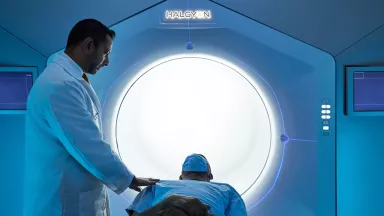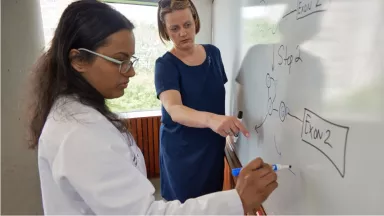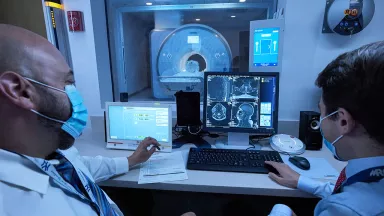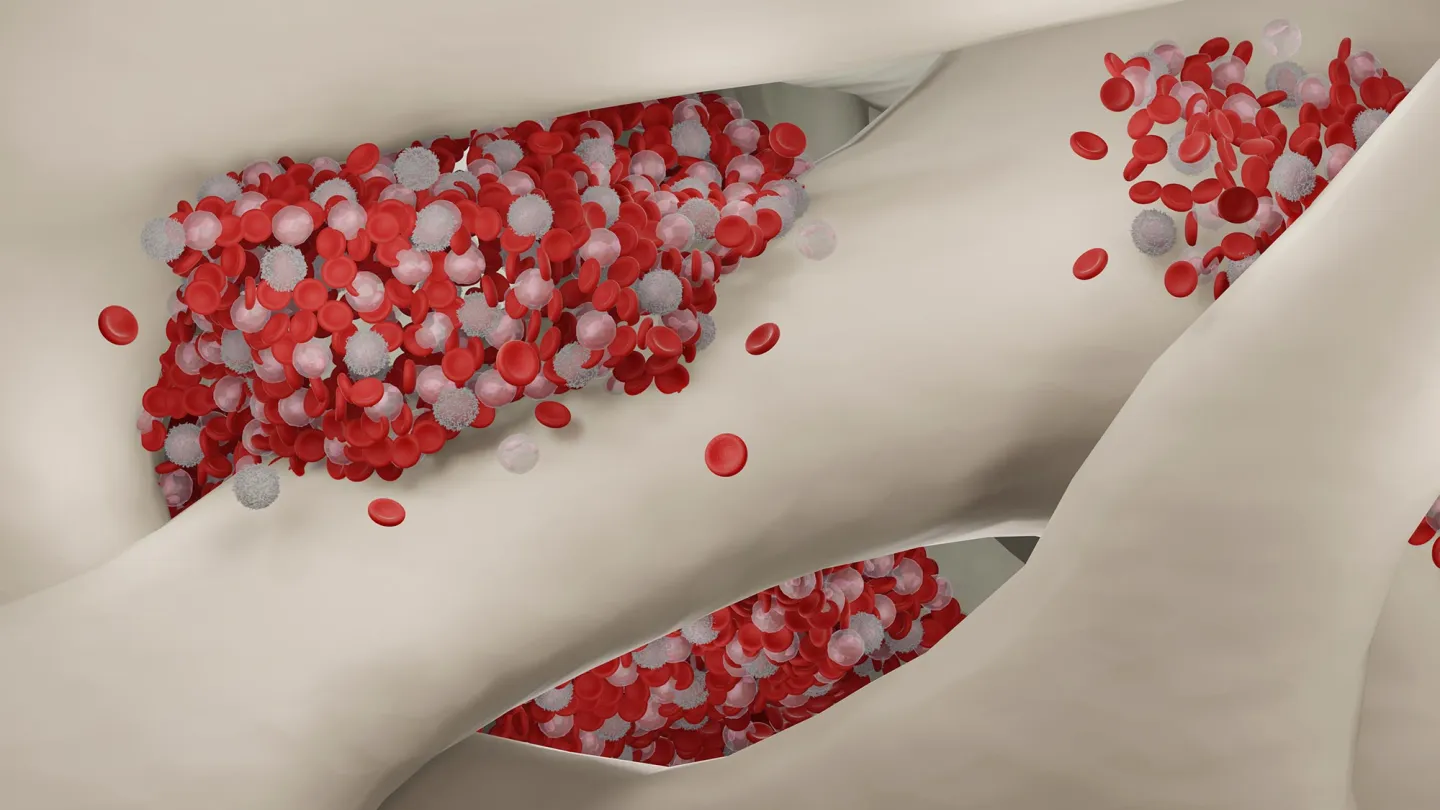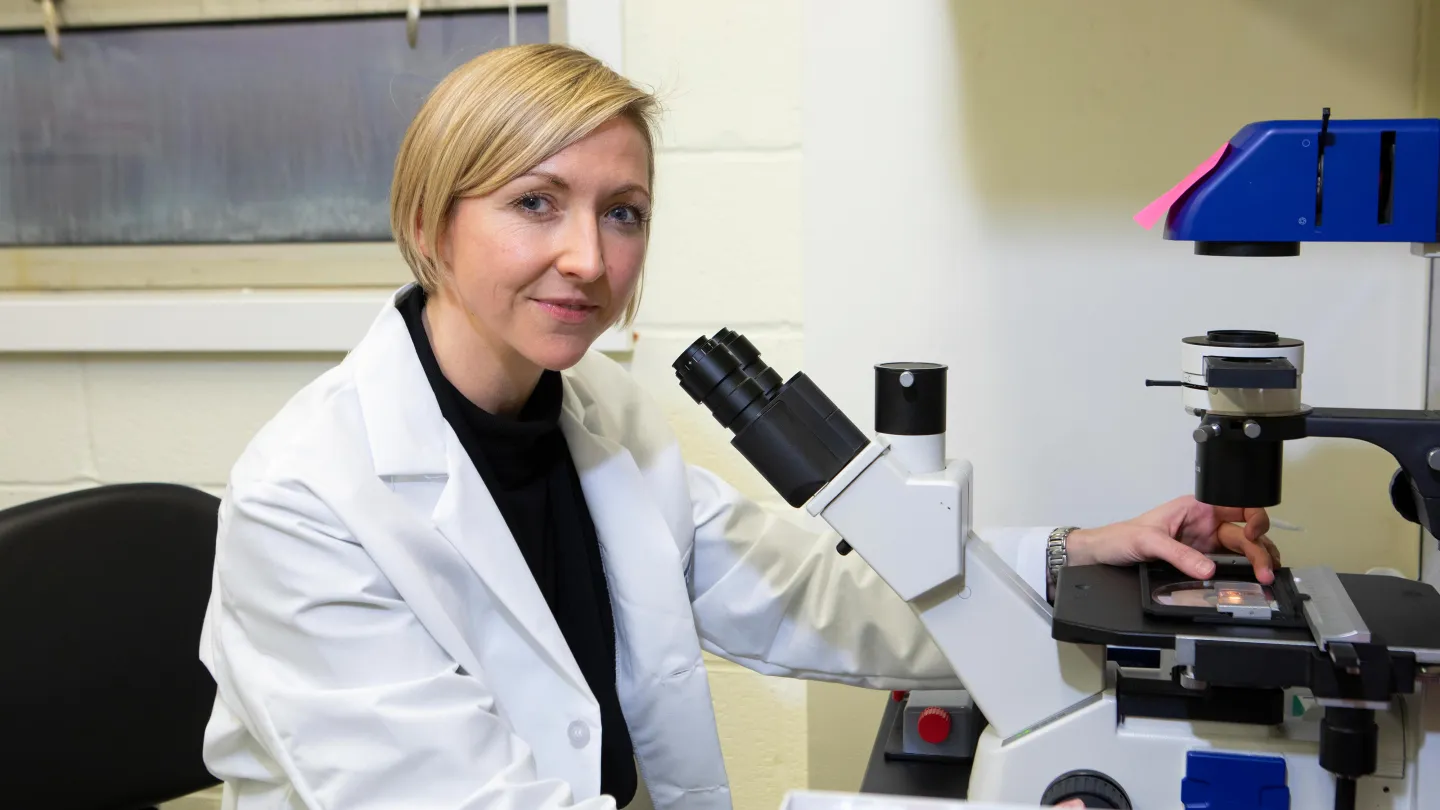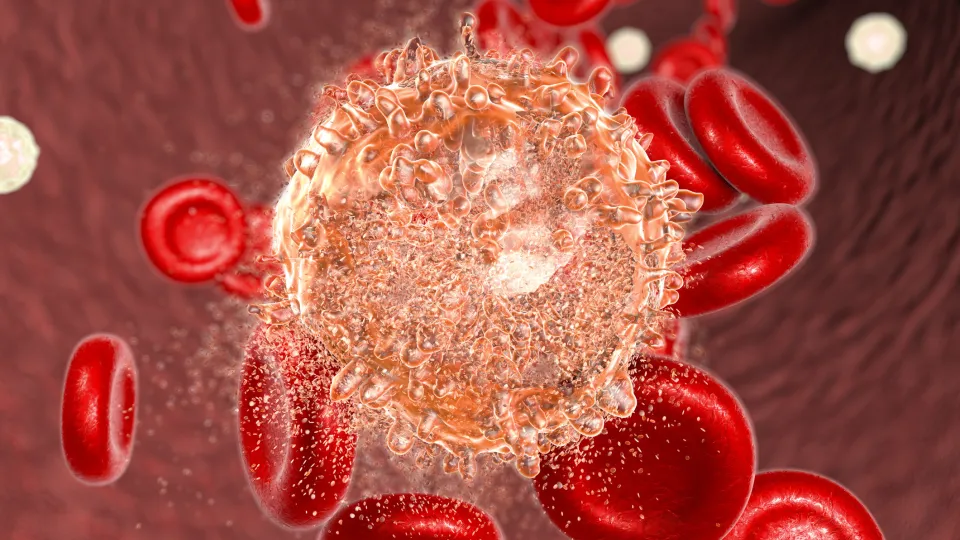Science at the Heart of Medicine
At Montefiore Einstein Comprehensive Cancer Center we believe in a research-focused, evidence-based approach to cancer care. Our patients have access to world-renowned cancer specialists and groundbreaking treatments—thanks to the strength of our research enterprise.
We’re involved in more than 300 cancer clinical trials, and our discovery-driven environment is a place where research trainees and professionals thrive.
Depending on the stage and diagnosis of a patient’s cancer, clinical trial participation may be an option. Investigators at Montefiore Einstein Comprehensive Cancer Center are involved in numerous clinical trials—from interventional trials to observational and feasibility studies.
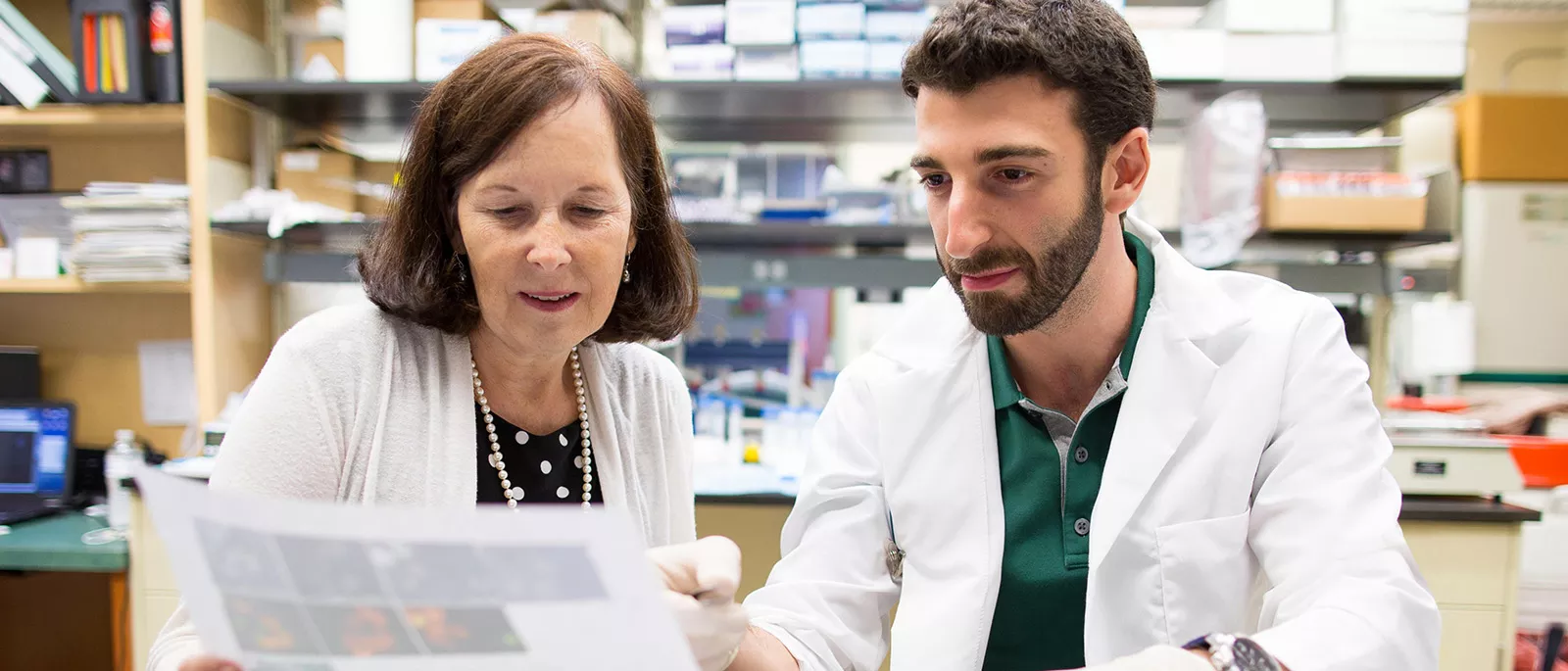
Transdisciplinary Research Programs
Innovation happens when we bring together different insights, approaches and perspectives.
Our transdisciplinary research programs bring together internationally recognized bench and physician-scientists from numerous academic fields to collaborate on basic, translational, and clinical research. Each investigator contributes a unique expertise and perspective on developing novel diagnostics and treatments for people with cancer.
Tumor Microenvironment and Metastasis
brings together advanced in vivo imaging technologies and innovative animal models to examine how the tumor microenvironment prompts and sustains cancer spread. The goal is to identify novel biomarkers and treatment targets that will aid in personalizing the prevention and treatment of metastases.
Stem Cell and Cancer Biology
encompasses three interrelated themes: How healthy stem cells function and prevent cancer formation; the characterization of healthy and cancerous stem cells in patients in order to develop novel diagnostics and treatment; and the biochemical and molecular mechanisms behind gene regulation, RNA translation, and splicing that drives stem cell differentiation.
Cancer Therapeutics
provides oversight for all clinical therapeutic trials at our Cancer Center and the development of novel therapies based on our scientists’ basic laboratory discoveries. The program is the focal point for developing small molecule inhibitors and novel immunotherapies for the treatment of cancer.
Cancer Epidemiology, Prevention and Control
reflects the expanded scope of population-based research that examines infectious, metabolic, endocrine, obesity-related and genetic/epigenetic causes of cancer and their prevention and control.
Basic & Translational Research Institutes and Initiatives
At Montefiore Einstein Comprehensive Cancer Center, we focus on multiple facets of oncology research in our drive to better understand cancer and improve care. The more we learn, the better equipped we and others are to develop new diagnostic tests, preventive care plans and targeted, personalized treatments.
To create innovative cancer treatment strategies, we study solutions through:
- Basic research. Through basic bench research our scientists investigate fundamentals, such as genetic and environmental factors that set the stage for cancer to emerge and spread. Basic research helps us understand or deepen what we know about how cells and body systems work.
- Translational research. Here’s where we turn basic discoveries in the lab into useful tools and treatments for cancer and acquire a deeper understanding of cancer risk and incidence across populations.
Much of this research is accomplished through the work of investigators in our Transdisciplinary Research Programs, as well as through various Montefiore Einstein institutes and initiatives such as:
This collaborative program speeds up the pathway from lab breakthroughs to promising therapies and even cures for blood cancers.
We research why some cancers go dormant—and the factors that cause cancer to return.
Using lab and computational resources, we examine how cells respond to changes in DNA or to changes in tissue.
We study and create new microscopy techniques that can lead to biomedical advancements for the research community.
The risk for cancer rises as we age. We develop experimental models of aging to shed light on ways to delay, stop and reverse biological aging—and uncover new treatments for cancer.
Funded by the National Institutes of Health, the Harold and Muriel Block Institute for Clinical and Translational Research aims to develop innovative solutions to improve the efficiency, quality, and impact of turning observations made in the lab, clinic, and community into actionable interventions that improve health. We give researchers infrastructure and collaborative support, as well as providing training, education and career development opportunities.
Learn about the Institute for Clinical and Translational Research
We use advanced technologies to generate highly detailed images that illustrate how cancers and other complex diseases develop and progress in the body. We use these data to identify the molecular changes that cause cancer, diabetes, Alzheimer’s Disease and other conditions.
We are exploring and advancing novel immunotherapies to clinical trials.
Through this NCI-supported national network, we bring cancer clinical trials to our community and conduct cancer care delivery research with the goal of better addressing the needs of people in our communities.
Learn about the NCI Community Oncology Research Program (NCORP)
We develop novel cancer treatments by translating scientific discoveries into stem cell-based therapies. Much of this is achieved through nurturing collaboration across departments.
- Breast Cancer
I-SPY TRIAL: Neoadjuvant and Personalized Adaptive Novel Agents to Treat Breast Cancer
-
Conditions
Breast Cancer
- Multiple Hematologic Malignancies
A Safety and Efficacy Study Evaluating CTX131 in Adult Subjects with Relapsed/Refractory Hematologic Malignancies
-
Conditions
Multiple Hematologic Malignancies
- Chronic Lymphocytic Leukemia
- Diffuse Large B-Cell Lymphoma
- Acute Lymphocytic Leukemia
Phase I/II Study of Rapcabtagene Autoleucel in CLL/SLL, 3L DLBCL, R/R ALL and 1L HR LBCL
-
Conditions
Chronic Lymphocytic Leukemia, Diffuse Large B-Cell Lymphoma; Acute Lymphocytic Leukemia
- Endometrial Cancer
Testing the Addition of the AKT Inhibitor, Ipatasertib, to Treatment with the Hormonal Agent Megestrol Acetate for Recurrent or Metastatic Endometrial Cancers
-
Conditions
Endometrial Cancer
- Limited-Stage Small-Cell Lung Cancer
Study Evaluating Tarlatamab After Chemoradiotherapy in Limited-Stage Small-Cell Lung Cancer (LS-SCLC)
-
Conditions
Limited-Stage Small-Cell Lung Cancer
- Multiple
Study to Investigate the Efficacy, Safety, and Tolerability of Topical HT-001 for the Treatment of Skin Toxicities Associated With Epidermal Growth Factor Receptor Inhibitors
-
Conditions
Multiple
- Lung Cancer
Study to Assess Neoadjuvant Durvalumab (D) and Platinum-Based Chemotherapy (CT), Followed by Either Surgery and Adjuvant D or CRT and Consolidation D, in Resectable or Borderline Resectable Stage IIB-IIIB NSCLC (MDT-BRIDGE)
-
Conditions
Lung Cancer
- Urothelial/Bladder Cancer
Study of BT8009 as Monotherapy or in Combination in Participants with Locally Advanced or Metastatic Urothelial Cancer (Duravelo-2)
-
Conditions
Urothelial/Bladder Cancer
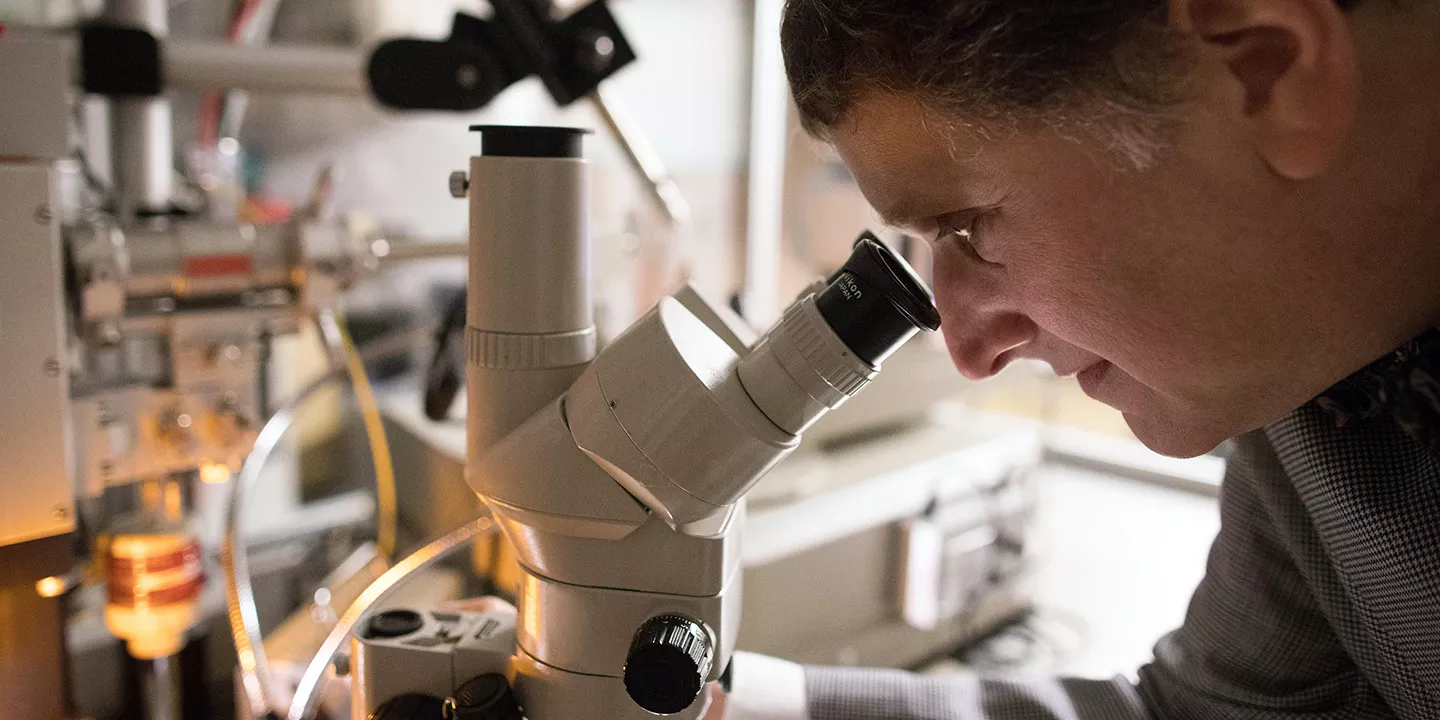
Montefiore Einstein Comprehensive Cancer Center Shared Resources
Successful translational research requires a multidisciplinary approach. At Montefiore Einstein Comprehensive Cancer Center, we support the sharing of clinical, basic science and epidemiology expertise in the name of fostering new ways to better diagnose, treat and prevent cancer.
Our state-of-the-art technology, facilities and support services give our research teams everything they need to investigate cancer development, prevention and treatment.
We provide our world-renowned specialists, researchers and scientists with the resources they need to succeed, including partnerships with the postdoctoral fellows and researchers at the Albert Einstein College of Medicine.
Research Training Programs
As part of the Albert Einstein College of Medicine, our research teaches and trains the next generation of cancer research leaders. We offer a Ph.D program and a Medical Scientist Training Program (MSTP). Students gain exposure to biomedical research lab work, clinical pathology and more. And Einstein’s Belfer Institute for Advanced Biomedical Studies functions to help integrate all of the college’s postdoctoral training programs, serving as an advocate for trainees at this stage.
- Learn about our Ph.D program
- Learn about our Medical Scientist Training Program
- Learn about the Belfer Institute for Advanced Biomedical Studies
Professional Development and Educational Opportunities
We’re committed to helping cancer clinicians and researchers grow professionally and advance in their fields. Learn about our extensive cancer research education and training programs for students and professionals.

Find an Investigator
More than 130 bench scientists and clinical researchers work in cancer discovery.
Search by Name


